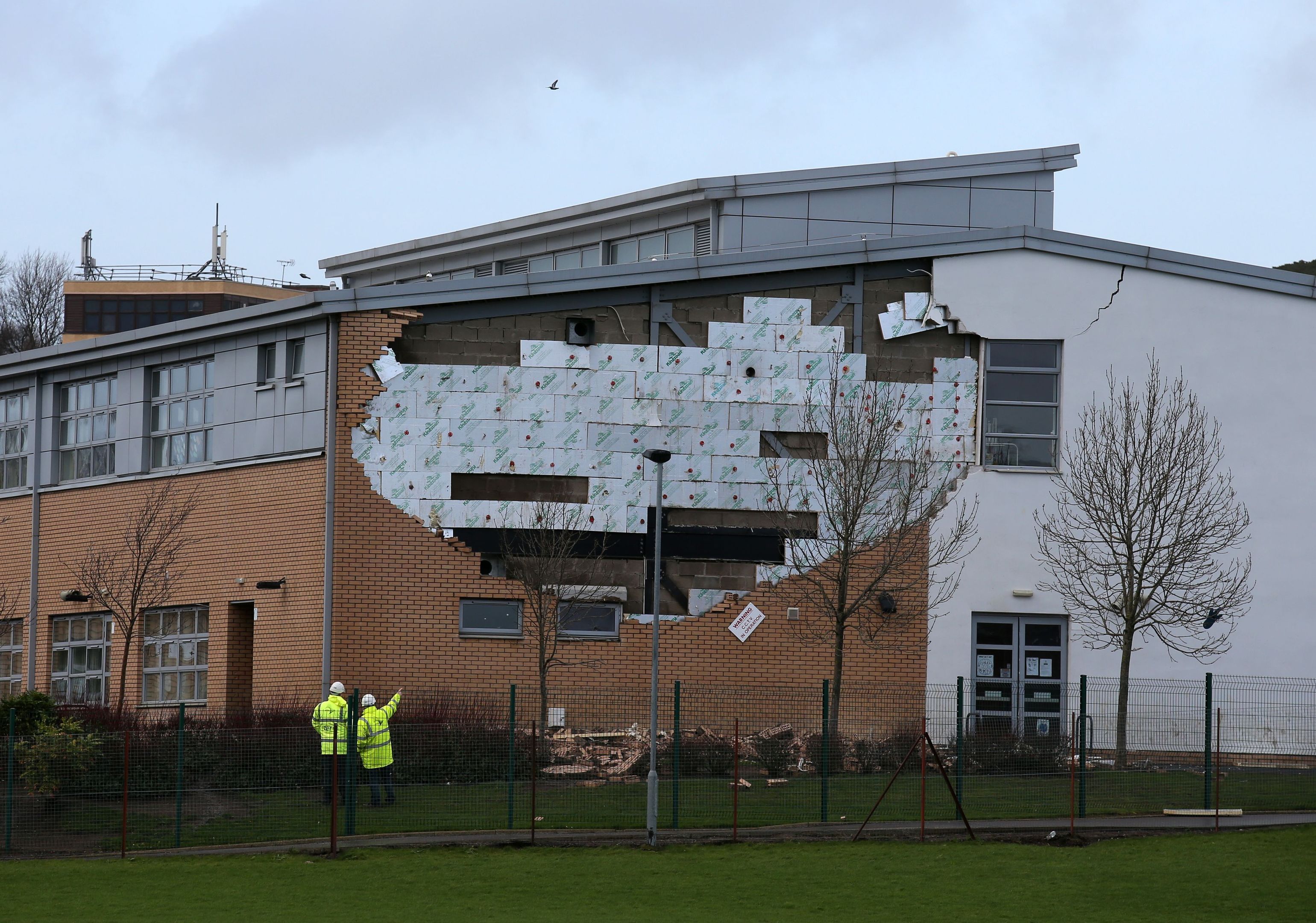
THE firms involved in the schools closure scandal that saw thousands of pupils bussed to other premises banked £17 million from the taxpayer last year.
And they have still to pay any penalties for the fiasco.
A total of 17 primary and secondary schools in Edinburgh – all built by the same companies through a public-private partnership project – closed amid safety fears in April.
Around 8,000 pupils were ordered to stay away over the concerns.
At the time, tough-talking council bosses insisted they would withhold a £1.5m monthly payment to the private finance consortium responsible.
But we can reveal the council didn’t follow through with this threat and is still in legal talks with the firms over how much it will eventually deduct.
Since the crisis erupted the consortium – Edinburgh Schools Partnership – has picked up the bill for repairs to the schools, all of which will be open again by next month. But a deal on the cost of relocating nearly 8,000 pupils and compensation has still to be agreed and could end up in the courts.
An independent inquiry into the scandal is due to get under way shortly and is expected to have Scotland-wide implications as the standard of schools built using private finance models comes under scrutiny.
Tavish Scott, Lib Dem education spokesman, said: “This is a ludicrous situation.
“The Edinburgh Schools Partnership is laughing all the way to the bank despite their buildings putting the safety of pupils at risk and causing huge disruption for teachers and families.”
The problems in Edinburgh began when Storm Gertrude in January blew down hundreds of bricks from an external wall of the city’s Oxgangs Primary.
Subsequent safety inspections found problems with the way the wall was erected in 2005 and then similar faults were uncovered at other schools in the capital. The scandal spread to more schools in Scotland, built by the same firms, and has brought into sharp focus the controversial method, pioneered by Labour, of private finance deals to construct public buildings.
Andy Wightman, Green MSP for the Lothians, said: “In this new session of parliament, we will be demanding a root-and-branch review of all PPP/PFI contracts, including the cost, the condition of buildings and the future funding of them. It’s not acceptable for there to be no financial repercussion for ESP.”
Copies of the invoices issued to the council from ESP show the consortium – made up of construction and finance firms – banked just over £17m in 2015/16 as part of a 30-year deal to cover building, debt financing and maintenance costs of the schools.
It is expected the total repayment cost for the 17 schools will hit £529m by 2032, significantly higher than the £360m originally declared.
Speaking in April about the £1.5m monthly payment to the consortium, a council spokesman said: “We will not be paying them that this month.”
Asked if the April payment had been withheld, an Edinburgh Council spokeswoman responded: “We will continue to pursue ESP under the contractual terms including making appropriate deductions from the unitary charge.”
READ MORE
Ever called a teacher mum? The Top 10 primary school ‘rites of passage’ revealed
Number of primary schools evacuated after phone threats

Enjoy the convenience of having The Sunday Post delivered as a digital ePaper straight to your smartphone, tablet or computer.
Subscribe for only £5.49 a month and enjoy all the benefits of the printed paper as a digital replica.
Subscribe